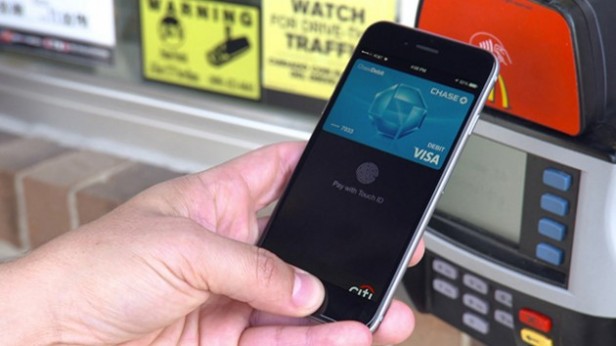Apple could be forced to allow non-Apple Pay transfers on iOS

German parliament has voted in favour of new legislation that will allow rival mobile payment services to compete with Apple on its own platform.
The German government wants to repeal protections on Apple's NFC chip, to allow Apple Pay alternatives to use the tech on iOS devices for their own services, Zeit Online reports.
Related: Best smartphone
The new law - which forces operators of electronic money infrastructure to allow rivals access to their tech for a fee - was added to an anti-laundering directive adopted by parliament this Thursday.
If approved, Apple will be forced to drop restrictions on its NFC chip, making it available to other payment services and financial institutions going forward.
NFC - or near field communications - involves a small chip that allows your iPhone to connect with a card reader simply by holding the two within close proximity of each other, even without an internet connection.
Apple's current model allows it to scrape a 0.15% fee off the top of every Apple Pay transaction from the bank that issued the card. If this law passes, banks could potentially create their own NFC-enabled contactless transfer services directly within the banking apps on your phone. While Apple would reportedly still be able to charge these alternative services a fee to access the chip, it wouldn't be as high as the current rate the company charges.
Other mobile payment services also stand to benefit from the move, as they would be able to set up their own NFC-based transfer apps in much the same way that Google allows on Android phones.
Apple is - unsurprisingly - not a fan of the legislation.
The company told Reuters that it was "surprised at how suddenly this legislation was introduced", and that it fears the draft law "could be harmful to user friendliness, data protection and the security of financial information".
Related: Best iPhone
For the bill to pass, it will need to pass through Germany's upper house before becoming law next year, with Chancellor Angela Merkel reportedly already pushing for the committee to withdraw the amendment. The anti-money laundering law is set to come into effect in 2020.



















